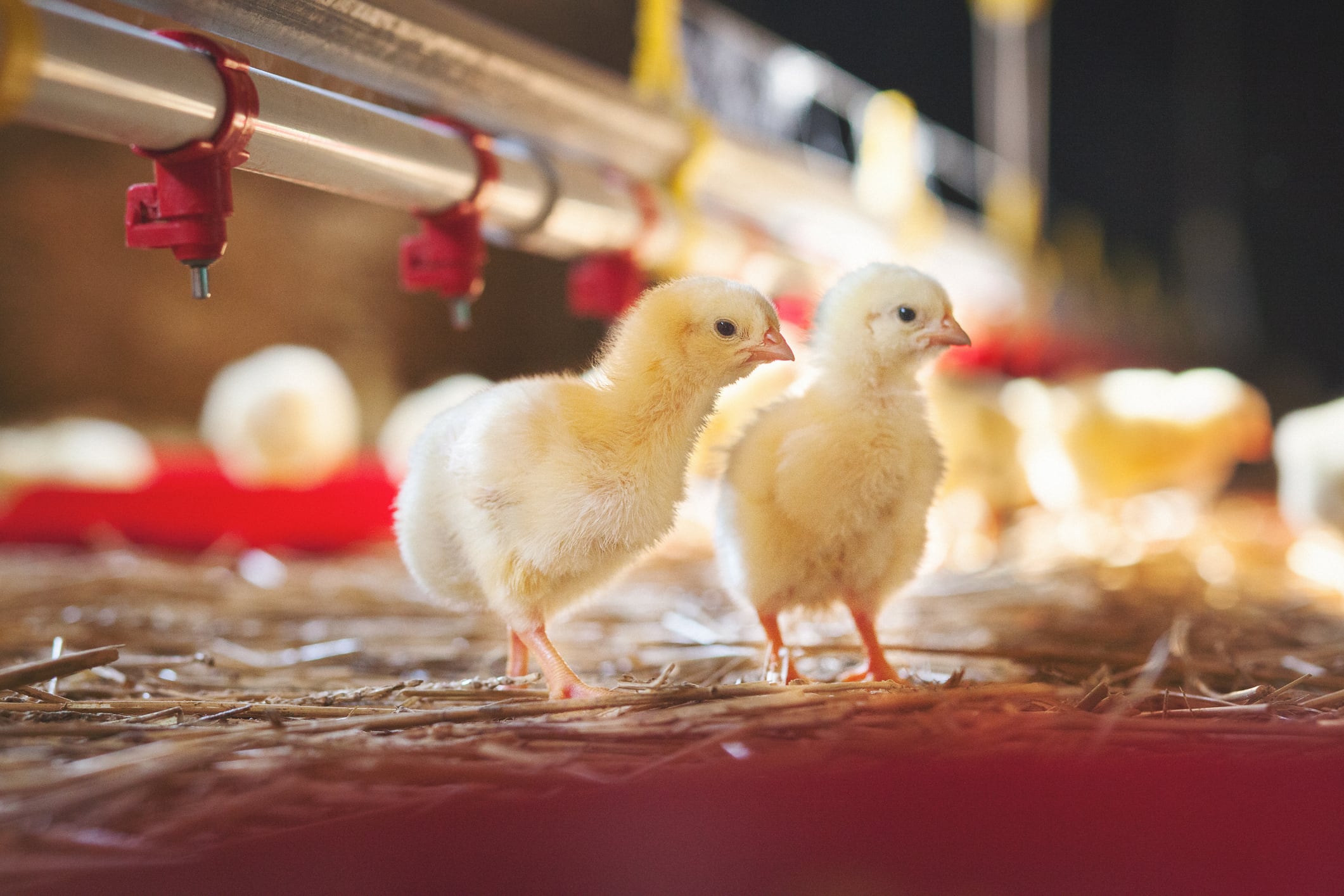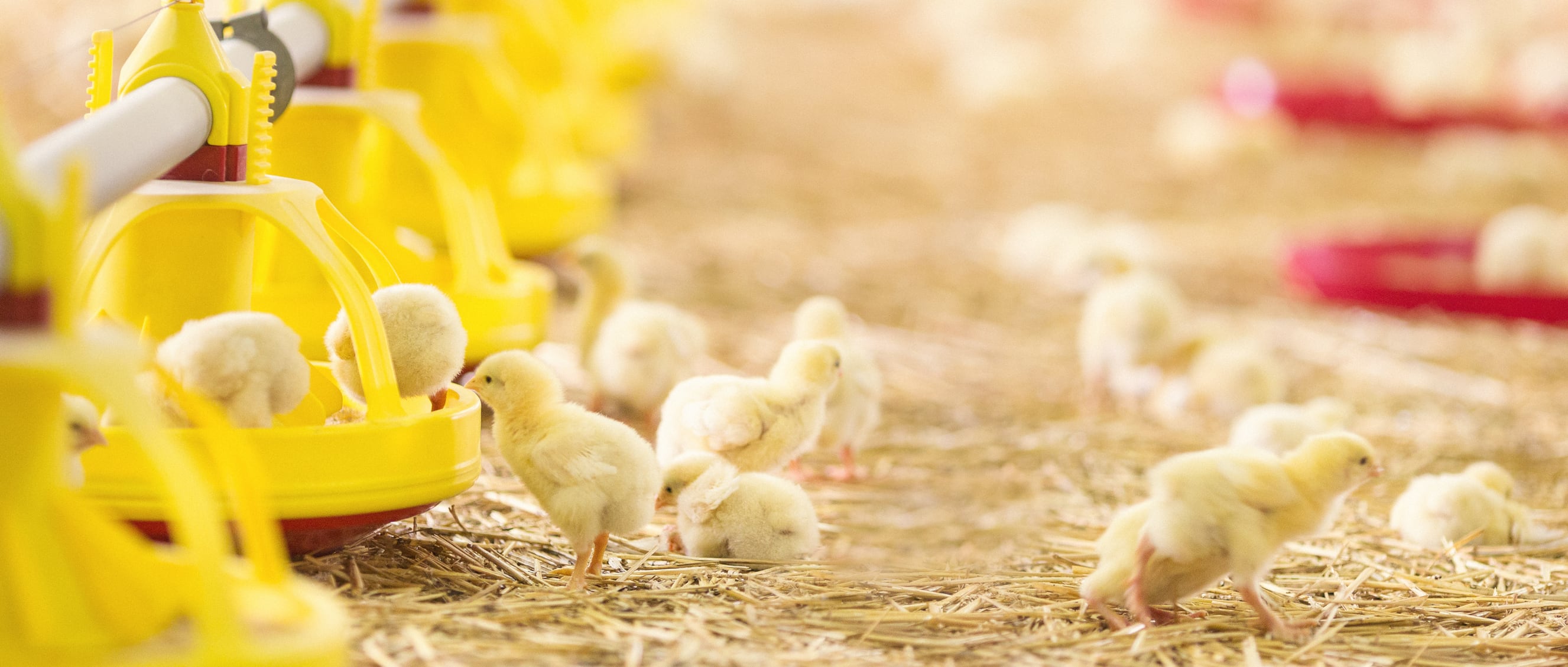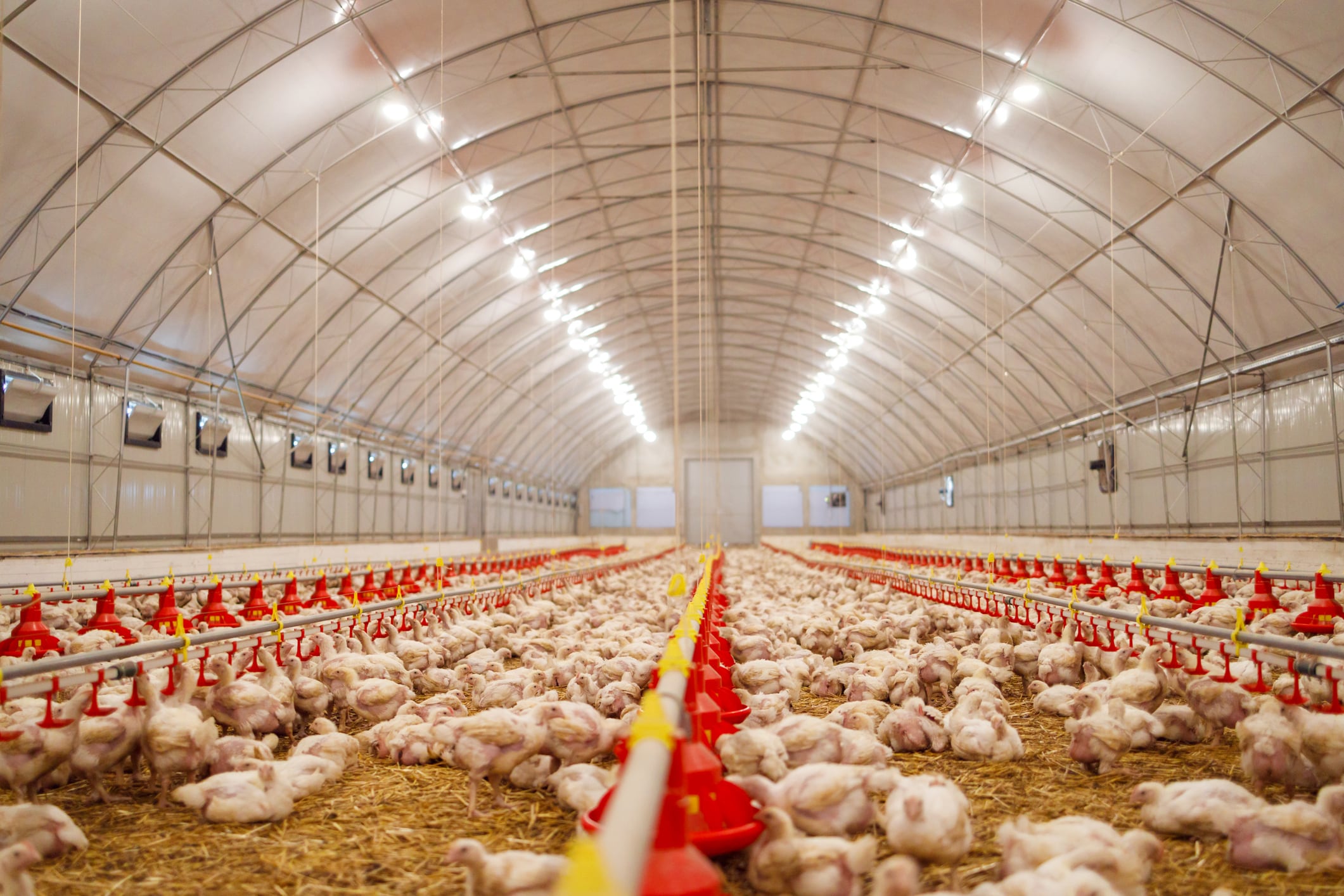US poultry processor, Perdue Farms, is reinforcing its long-standing commitment to bird welfare and responsible production practices with the adoption of on-farm hatching technology through a partnership with NestBorn.
Mike Leventini, general manager and vice president of live production at Perdue Farms, confirmed that the family-owned company began exploring on-farm hatching several years ago, viewing it as a potential enhancement to its No Antibiotics Ever (NAE) approach and broader animal welfare commitments.
“Perdue’s been in business for 104 years — and in all that time, we’ve used hatcheries,” said Leventini, speaking to us at the recent Animal AgTech Innovation Summit in Dallas.
NestBorn reimagines that model. “Instead of chicks hatching in trays at centralized hatcheries and facing delays before access to feed and water, with NestBorn they hatch directly on the floor of the broiler barn — where they have immediate access to everything they need.”
He added that this method also avoids the stress associated with hatchery handling and transportation of day-old chicks, helping to minimize fear, distress, and early-life stressors.
In summer 2023, Perdue introduced its first demonstration NestBorn Egg Placing Machine near its headquarters on the Delmarva Peninsula. The machine — developed by automation specialist Viscon — gently transfers pre-incubated, candled, and vaccinated eggs from setter trays directly onto the floor of temperature-controlled broiler houses. It marked the first US deployment of NestBorn’s technology, which has already been adopted across 10 European countries since its 2018 launch.
Following a year of successful demonstration and validation within a deep litter system, Perdue Farms has entered a preferred partnership with NestBorn and plans to deploy two state-of-the-art NestBorn Egg Placing Machines. This move will significantly expand the number of on-farm hatched chicks within Perdue’s supply chain.
Operational challenges
While the benefits are clear, Leventini acknowledged the transition presents operational challenges. “Our infrastructure — from trucks to barns — is built around delivering chicks, not eggs. There are implications for heating, logistics, even feed timing,” he said. “We need to prove this model can be equal or better in terms of bird health, efficiency, and cost. Once we do that, we will scale further.”
Barn environment control, particularly pre-warming, is critical in the NestBorn system. “We’re looking into the most effective heating strategies whether that’s forced air or radiant heat.”
NestBorn general manager, Erik Hoeven, said the US pilot allowed the Belgian-based firm to fine-tune equipment and protocols for US barn conditions. “We hope that favouring barns over hatcheries for the final two or three days of the hatching process can offer alternative solutions for Perdue in terms of future hatchery designs and investment strategies.”
Doubling down on protocols
The NestBorn rollout aligns closely with Perdue’s philosophy of proactive animal care and a preventative, rather than reactive, approach to health management.
“We do not think of it as ‘No Antibiotics Ever’ just for the label,” said Leventini. “We focus on raising birds, so they do not need antibiotics — through clean hatchery environments, effective vaccination, gut health support, and reduced stress throughout the lifecycle. It is a truly holistic approach.”
He emphasized that even amid rising disease threats like Highly Pathogenic Avian Influenza (HPAI), the company is maintaining its NAE standard. “HPAI is a biosecurity issue. We do not vaccinate for it in the US, so we are doubling down on protocols — working with our farmers, hosting regular calls, and tracking wild bird migration.”
It is all about preparation and vigilance, he stressed.
Leventini said the company’s decisions are guided by doing what is right — for the birds, the farmers, and its customers. “We know how to work with our growers, and we believe this is the right way to raise chickens. We are not turning back.”
Bird flu vaccine
The US Department of Agriculture (USDA) has given a conditional approval to animal healthcare company Zoetis for an updated vaccine to protect poultry against the H5N1 bird flu strain.
A conditional license is used to meet an emergency condition, limited market, local situation or other special circumstance and is issued for a finite period of time.





